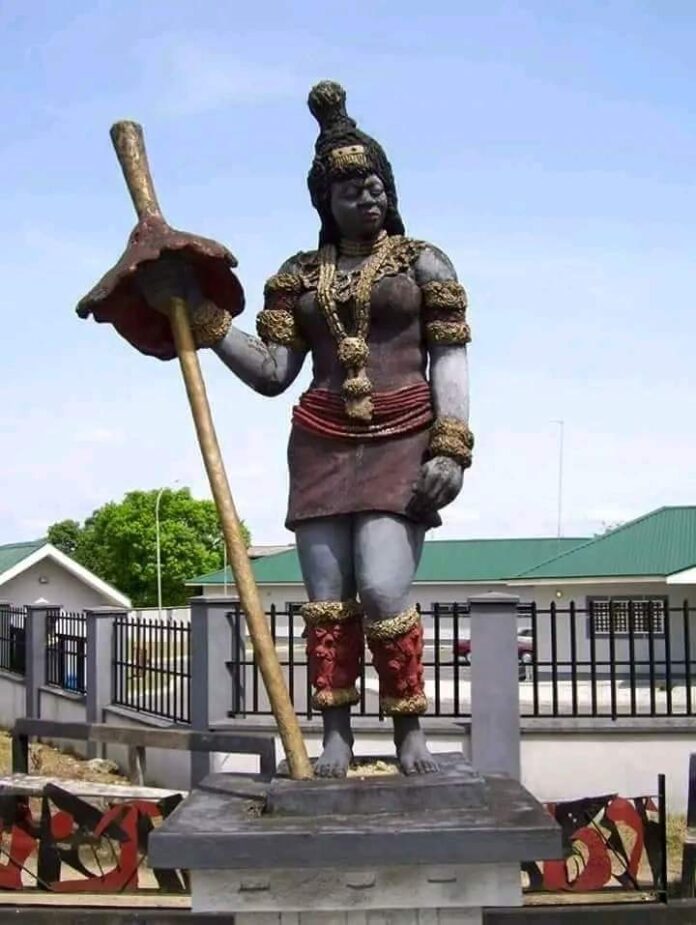Undoubtedly, religionists that promote the “white God mentality syndrome” imposed and fostered in Africa by Western imperialism and “spiritual globalization” (Uka, 2015), will readily conclude that this post asserts their critically unguided demonization of Ekömbi dance with empirically unjustified claims/criticisms.
Yet, an open minded reader would, despite sentiments and fanaticism, objectively admit the fact that Africa, like every other world continent has her original beliefs systems and right to her natural heritage sustainments till eternity. So, Efik as one of Africa’s most ancient frontline kingdoms in Nigeria South has right to promote and preserve her rich heritage of culture, religion and myth, defined by the Greeks as the traditional stories of heroic accomplishments of gods or legends, otherwise seen by Sigmund Freud as “primitive science”.
Certainly, the Efik’s popular Ekömbi maiden dance is one of such natural endowments/indigenous heritage that rightly draw from and/or utilize every aspect of Efik culture, religion and myth to her mundane (ordinary) and extra-mundane (extra-ordinary) advantages from origin, history and practice. Therefore, whether[not] the Efik Ekömbi dance is “Ndemic” by origin or nature is contextually insignificant, hence of no serious academic debate interest to this article.
NOW TO THE SUBJECT
Contextually, Idem is the singular of Ndem (a collection of all Efik titular marine deities/spirits). It is often rendered fully as Idem mmöñ and ordinarily translated to mermaid/merman. It equally refers to a cult/ masquerade to which qualified natives are initiated and opened to membership rules and secrets.
However, it good to specify at this point that it is basically in the sense of our latter definition of Idem as cult, that Ekömbi is inferred as an Idem that is generally accepted by Efik customs and tradition as major Ndem musical and/or ritual-dance veneration media/approach.
Naturally, given that many of those traditionally connected to the inner spiritual or physical circle of Ndem veneration, praises and errands are usually priestesses and acolytes that are carefully selected and initiated as adorable bards, dancers/singers, it is also easy for every right thinker to understand from the perspective of claimed marine origin of Ekömbi, that, since Ndem in the Efik religion, cosmology and mythology is the highest of all gods, outside God; and Ekömbi is known to be the best form of generally accepted sung praises and dances in honour of Ndem, it follows logically that Ekömbi is Idem to extreme believers… by poetic implications.
Undoubtedly, those who ever had the opportunity to witness Ndem’s public veneration procession or pageantry during an Efik state ceremonial or religious event/festival… will readily admit that such usually captivating art is not only graceful and ritualistic by nature, spectacle, oral tradition and symbols, but spiritually brimmed with the aura of warmth sacredness, consciousness/ systemic essence, commanded as an exclusive reserve for initiates that truly understand the language, values and ways of the gods defied/appeased thro Ekömbi.
Of course, we need no god or oracle to conclude at this juncture, that exclusive Ekömbi songs/dance are generally accepted natural, official, ancestral worship media for Ndem Efik Iboku/Eburutu. Note that original Efik Ekömbi dance, like Ekpe… has social and highly restricted types. Social Ekömbi admits everybody and follows little or no strict rules/order for its twist and turns in time and space, except it is expertly taught/ choreographed for theatrical entertainment purpose.
While highly restricted Ekömbi is solely an idem (cult) for initiated members that dedicatedly follow very strict ethical, traditional or religious rules to venerate Ndem, failing which they may suffer upleasant spiritual or physical consequences of the gods or state.
Hogan writes from Calabar.










